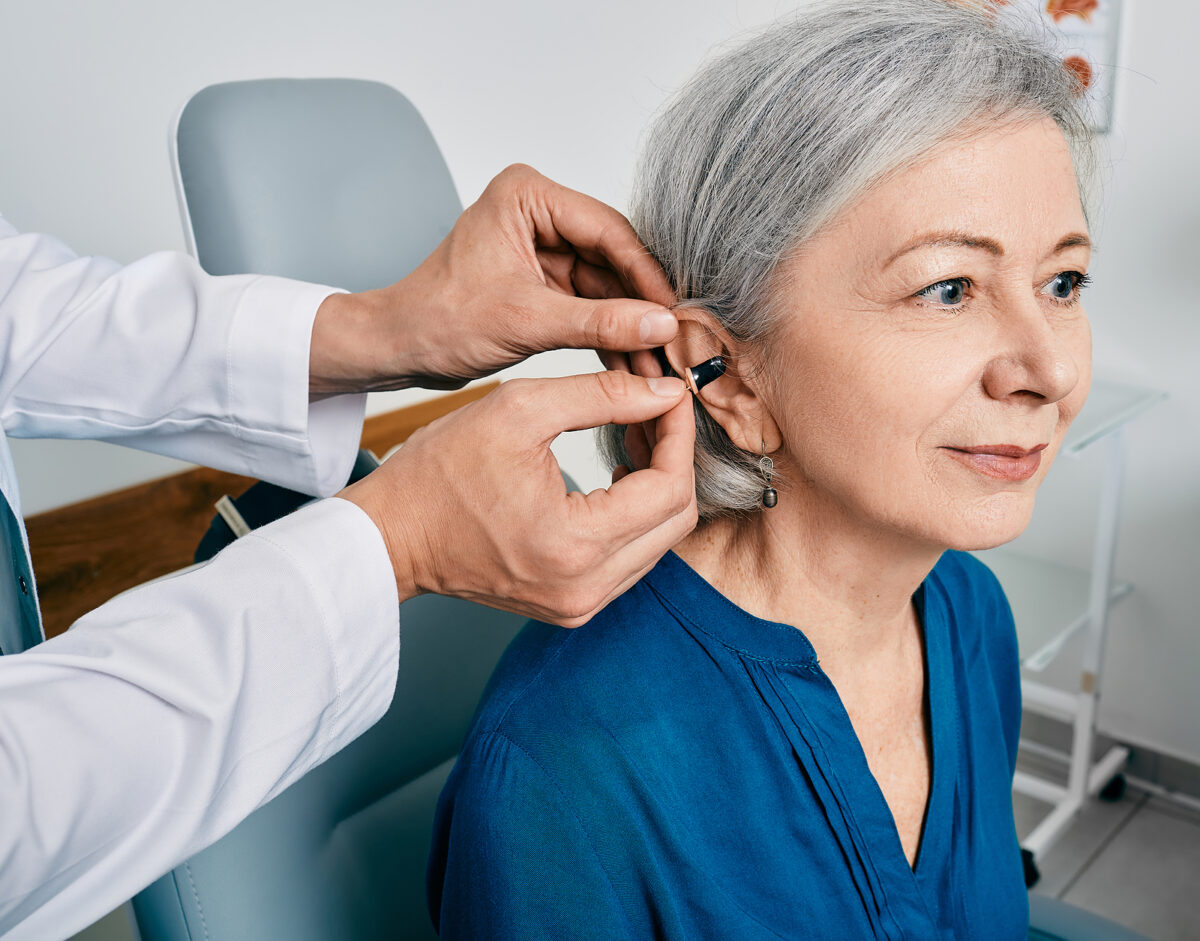- Tips for Using Hearing Aids in Different Environments - May 27, 2025
- Rechargeable Hearing Aids vs. Battery-operated Hearing Aids - May 16, 2025
- How to Effectively Communicate with Someone with Hearing Loss - May 7, 2025
With a population that is getting older quickly, it is essential to care for our older people. Whether you are taking care of an older person on your own or living in a care facility, it is essential to ensure that their needs are met and that they are getting the proper care.
Hearing loss in Americans over 65
Hearing loss is the third most common health problem in the U.S., affecting 48 million people. Hearing loss happens to people of all ages, but it is most common in Americans 65 and older. One out of every three people 65 and older has hearing loss. Half of the people 75 and older have some hearing loss. At age 85 and up, 80% of people with hearing loss are in this age group.
Even though hearing loss is expected, as shown by national statistics, it is often misdiagnosed and not treated well, even in older people. Age-related hearing loss, or presbycusis, is a common type of hearing loss in older people. Sensorineural hearing loss is the name for this hearing loss. Sensorineural hearing loss happens in the inner ear and the parts of the ear that turn sound waves into neural signals that the brain interprets as sound.
Hearing loss is an invisible condition, so most people don’t realize right away that the changes in their bodies and emotions are caused by hearing problems. People with trouble hearing are more likely to turn up the volume or think that the people around them are mumbling.
Supporting your loved one with hearing loss in a care home
If an older member of your family lives in assisted care, it’s essential that they can talk to care staff every day and speak up for themselves. Part of this process is to treat hearing loss.
If you have older family members with hearing loss who live in a long-term care facility, here are a few things you can do to ensure they get the proper care and attention.
- Develop a good working relationship with the staff and learn about the facility’s policies and services for hearing aids and other health care needs.
- Label hearing aids. Hearing aids that get lost can easily be thrown away by mistake. Use a permanent marker to write the resident’s name on the hearing aid. Hearing aids can also be painted bright colors so that they will be easy to find if they fall out.
- Put a small, strong plastic case, like a pencil case, next to the bed to store things at night. If you always put the device away this way, it will be easy to find and use in the morning.
- Use a system of retainers. There are attachments for hearing aids that let the device clip to a cord and then to the wearer’s clothing or attach in some other way. This keeps the hearing aid from being dropped and broken or lost.
- Keep the hearing aid in good shape. This can be difficult for nursing home staff to attend to, but it is something a family member can do pretty quickly: Use a soft, dry toothbrush to remove dirt from the hearing aid and check the batteries once a week.
- Find out what the nursing home does so that the hearing aid and the person who wears it gets the best care. Talking to the facility staff can help you determine if they can make sure the hearing aid is put in in the morning and taken out at night. Any help you do on your own might also help other seniors in the area.
How to tell if someone is losing their hearing
If your loved one doesn’t have hearing aids, they might need them. One way to help an older person you know is to watch for signs of hearing loss and encourage them to get help if they show up.
Hearing loss can be hard to notice because it is not visible. The Hearing Loss Association of America says these are some of the signs:
- They often ask someone to say something again
- They have trouble keeping up with group conversations
- They think people are mumbling.
- They raise the volume on the TV or car radio all the time.
- They have trouble talking on the phone.
- They can’t hear or understand what people say at the movies.
- They avoid loud parties or restaurants.
If you know an older person who shows some of these signs, tell them they should get their hearing checked. Hearing tests give you a complete picture of how well you can hear and help you figure out how to treat hearing loss.

